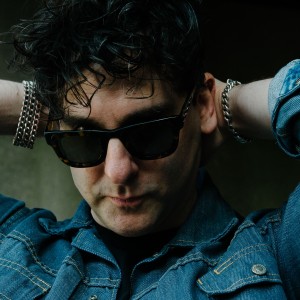In one word, it's authenticity that pours forth from Kenneth Carr's recordings, marking him as a player worth your attention in the mixed up, muddled up world of modern jazz.
His latest release, Amazing Love, crosses over several sonic boundaries, funneling jazz tropes into a mixture of hip-hop, shout and even Latin and salsa. It is to his credit, though, that Carr's catholic tastes never sound forced or insincere.
Again, no matter the style, the horn of Kenny Carr always sounds true. Classicalite recently caught up with the budding heavyweight trombonist for an exclusive Q&A session.
Classicalite: You've been described as "rewriting the rules" of jazz. And you've played with such heavyweights as Ray Charles, Jon Butler and Sheryl Crow. What are you trying to accomplish with your take on jazz, and where do you see it fitting in with regards to the idiom today?
Kenneth Carr: I feel, as an artist, it's vitally important to merge the old with the new while maintaining the true authenticity and the integrity of the music without compromising your sound. I like to think that I have a good grasp on mixing the two. It's important to evolve your music as an artist, but to always keep your authenticity true to who you are.
C: Amazing Love has been well-received by most jazz tastemakers. The album certainly has its own sound, and your trombone playing here is not unlike what some of the more flexible jazz singers are doing (which you do, as well). Be it through the horn or on the mic, specifically, what are you trying to say with these songs?
KC: I'm excited about my new release, Amazing Love. I feel with this project it's a body of work that will relate to the audience in various ways. I hope that the listeners go on a journey with me via the selections. It's rare that you can experience that anymore with the way the music business is now. Most artist release singles, or EPs, so I like to try and tell a story with my music. And I just hope that the listeners appreciate that. My goal as an artist is to always make music that transcends the conversation from the trombone to the heart of the listeners, while creating what I call a "sound therapy" experience.
C: In an age where instruments are digitally manipulated to capture a "perfect sound," you seem after something more organic. On Amazing Love, it sounds like all the instrumentation was done in house, possibly in the same room ("Last Call" sounds like early bop, occasionally capturing something even earlier, like Louis Armstrong's ensembles). Do you feel that this disc is more honest because of its production value?
KC: Yes, I feel that today's listeners will get an appreciation of full, live sounds through my instrument. I hope that my passion for real music is heard on the Amazing Love project. I feel that music has taken a turn away from the authentic live instrumentation, and my hope is that this project will help play a vital role in reviving live sounds to another level. I like to mix the old with the new; it's something I do a lot of in my style. I like to keep my music honest. And I typically play most of the parts on my songs, myself. It's been a great pleasure for me to be involved in every facet of the production of my project.
C: Are there any influences you're consciously trying to channel here?
KC: Most people are shocked when they see my performance. I don't think they expect the live and energetic vibe I give you during a performance. The influences that I try to channel are the influences I have had from my family. My mother is singer and performer, and she taught me the value of being a great performer. She was a great role model in teaching me how to practice your craft and bringing people into your performances.
C: A track like "Let's Dance" sounds as if it were meant for a café or club venue. And its use of more modern sounds reminds me of Herb Alpert's latest "Puttin' on the Ritz," which was popular enough to win a Grammy. What's your formula for trying out new things while still remaning true to what you do?
KC: Absolutely! That is the one thing that most people have difficultly doing after they hear my music--categorizing it into one category. My music takes a bit from every genre of music. That's something that makes me unique, because I can really adapt to any type of music. However, I will always add my own personal twist on it.



